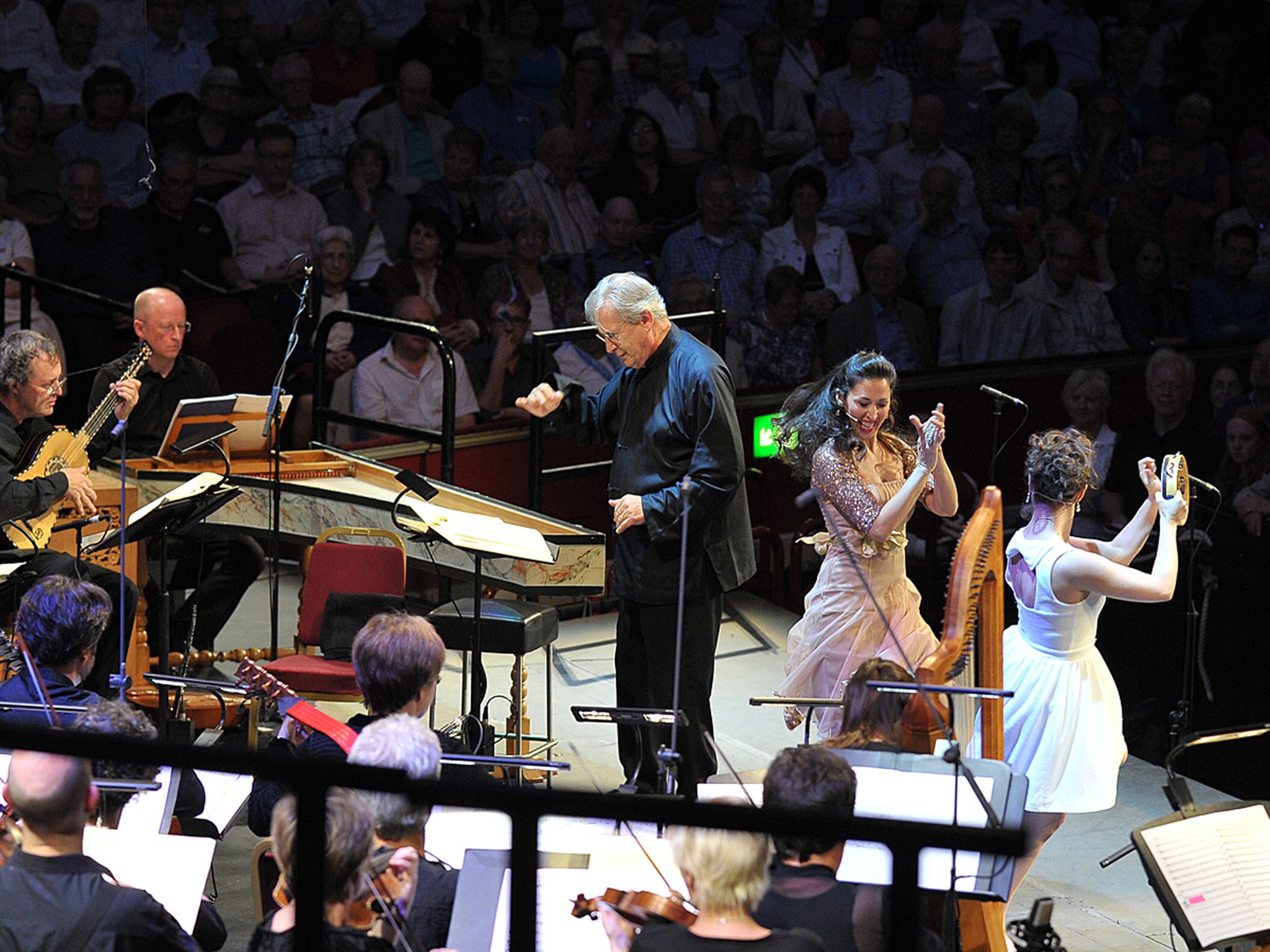Prom 25, Royal Albert Hall, review: Monteverdi's Orfeo offers moments of magic
This work still remains our most profound musical expression of love and loss

Your support helps us to tell the story
From reproductive rights to climate change to Big Tech, The Independent is on the ground when the story is developing. Whether it's investigating the financials of Elon Musk's pro-Trump PAC or producing our latest documentary, 'The A Word', which shines a light on the American women fighting for reproductive rights, we know how important it is to parse out the facts from the messaging.
At such a critical moment in US history, we need reporters on the ground. Your donation allows us to keep sending journalists to speak to both sides of the story.
The Independent is trusted by Americans across the entire political spectrum. And unlike many other quality news outlets, we choose not to lock Americans out of our reporting and analysis with paywalls. We believe quality journalism should be available to everyone, paid for by those who can afford it.
Your support makes all the difference.Recent attempts by British directors to stage Monteverdi’s Orfeo have all ended in disaster: what a relief to get a concert performance – plus delicate hints of staging – by the Monteverdi Choir and the English Baroque Soloists under the direction of that veteran Monteverdian Sir John Eliot Gardiner.
That 5,270 people should have listened in rapt silence for two hours on a hot night without an interval was testimony both to the public appetite for Monteverdi done straight, and to the sheer quality of this performance.
Gardiner’s perfectly-judged tempi and the soft timbre of the period band gave the work the momentum of a dream. It was all scaled down to intimacy through dynamic restraint, most notably with Krystian Adam’s wonderfully expressive Orfeo.
The other soloists included Mariana Flores (Eurydice) who danced as charmingly as she sang, Francesca Aspromonte (Music/Messenger) whose sound cut through the air with serene authority, Gianluca Buratto’s thunderous Charon (and mellifluous Pluto), and Andrew Tortoise’s sweet-toned Shepherd.
And there were moments of total magic: the Messenger’s tale of woe; Orfeo’s invocation ‘Possente spirto’ echoed by pairs of violins, then cornetts, then a harp; and his liberating dialogue with his soul. It all amounted to a reminder that, four centuries on, this work still remains our most profound musical expression of love and loss.
Join our commenting forum
Join thought-provoking conversations, follow other Independent readers and see their replies
Comments